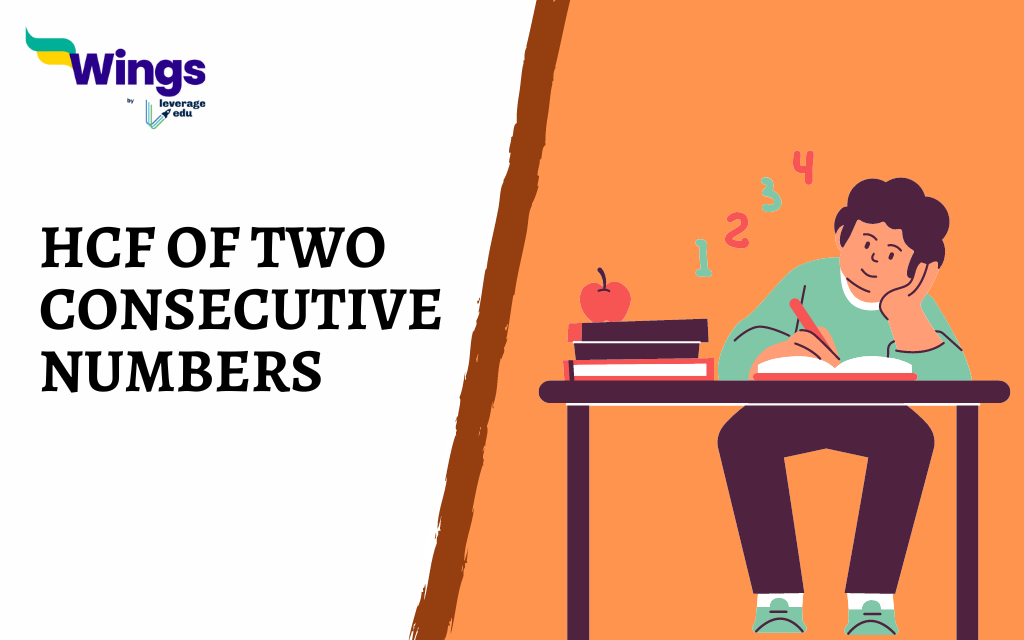HCF is the Highest Common Factor that can equally divide two or more numbers. Think of it as the biggest number that both of your chosen numbers can be divided by evenly, leaving no remainder. Moreover, Consecutive numbers are numerals that follow each other in order without any gaps. For example, 4 and 5, 13 and 14, or 31 and 32 are all Consecutive numbers because they are in order and right next to each other on the number line. Let’s find out what is the HCF of two consecutive numbers.
Kindly note: The word ‘Factor’ is interchangeable with ‘Divisior.’
Explanation
Now let us assume that we have two consecutive numbers, like 4 and 5, and we want to find their HCF.
- We are looking for the largest number that divides evenly into both 4 and 5.
- But the interesting fact is that since both the numerals are Consecutive numbers right next to each other, they do not have any common factors other than 1.
- Consequently, this means that the HCF of any two consecutive numbers will always be 1.
Let us put this to the test once again, just for clarity.
- We will now take the Consecutive numbers 21 and 22.
- If we try to find their HCF, we are looking for the biggest number that both 21 and 22 can be divided by evenly.
- Again, because these numbers are consecutive, the only number that fits is 1.
- So, the HCF of 21 and 22 will also be 1.
Obviously, this is a bit surprising at first, but it makes sense when you think about it deeply. Consecutive numbers are always just one apart, so they do not share any common factors other than 1.
Thus, the HCF of two consecutive numbers will always and forever be 1. No matter which two consecutive numbers you pick, you will never find a number bigger than 1 that can both be divided evenly.


 One app for all your study abroad needs
One app for all your study abroad needs












 60,000+ students trusted us with their dreams. Take the first step today!
60,000+ students trusted us with their dreams. Take the first step today!